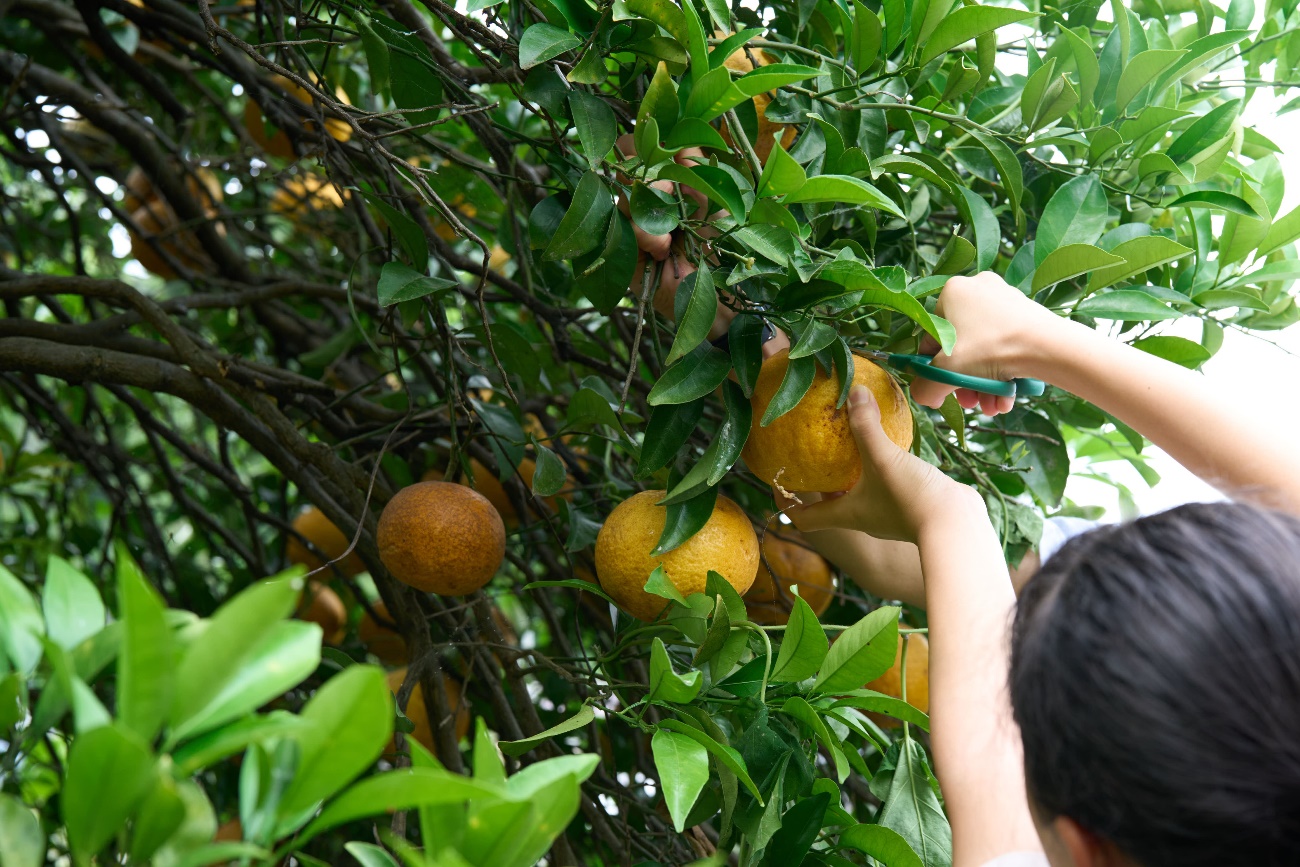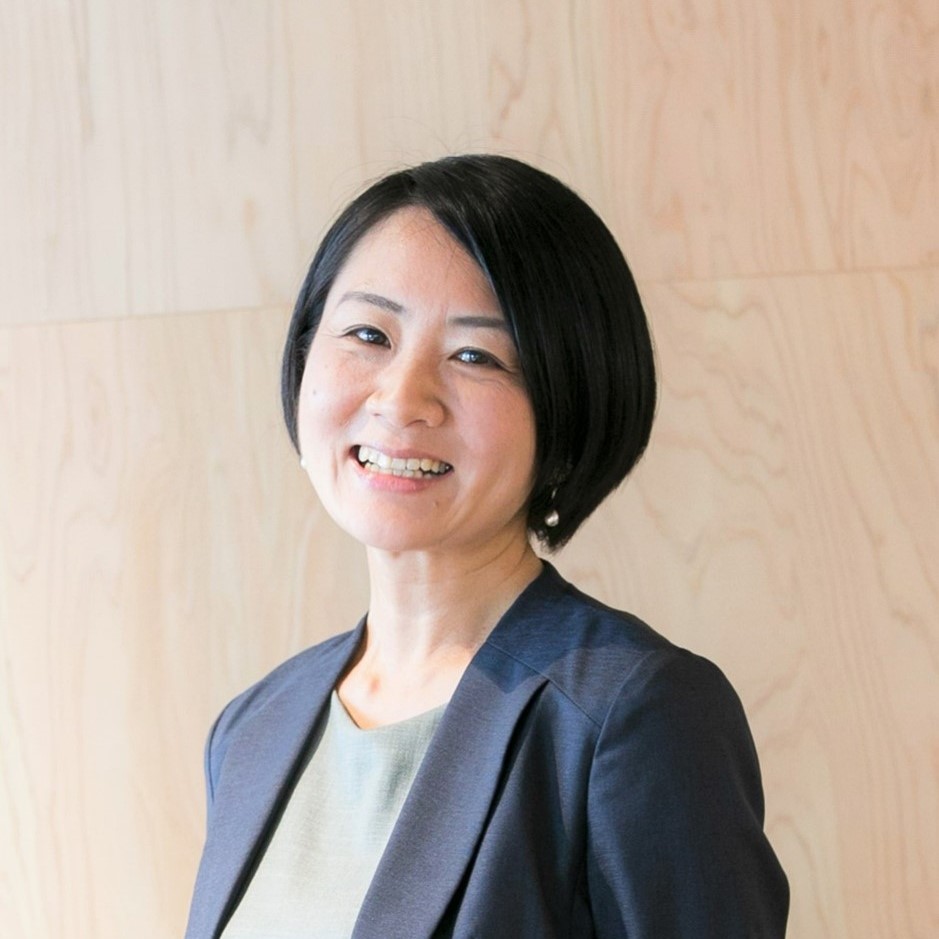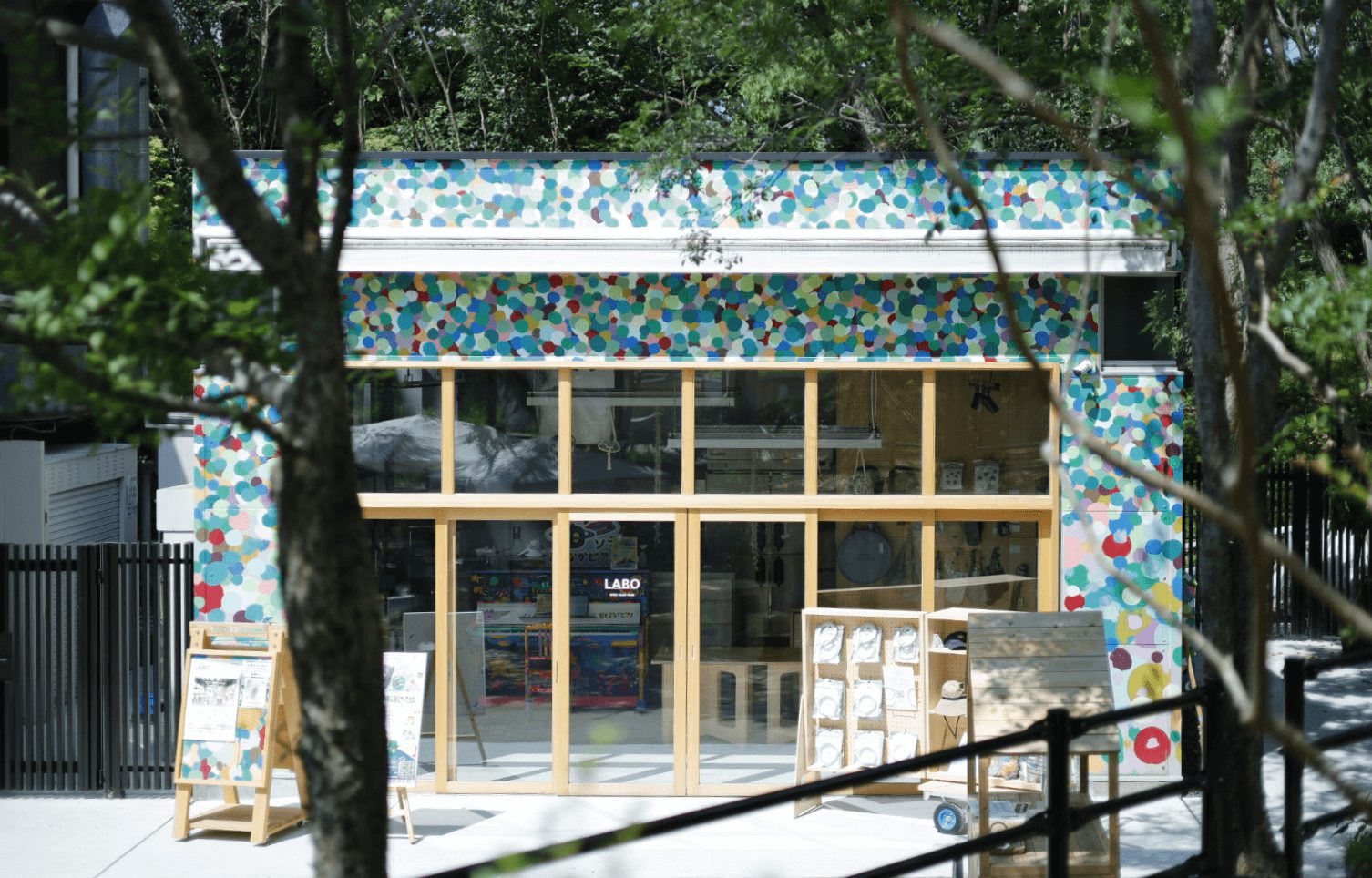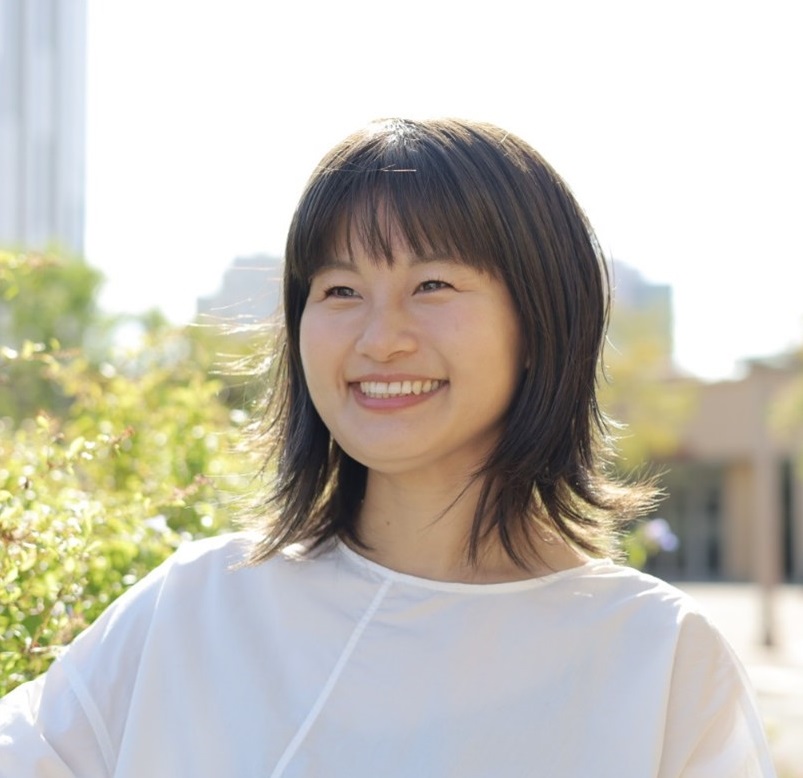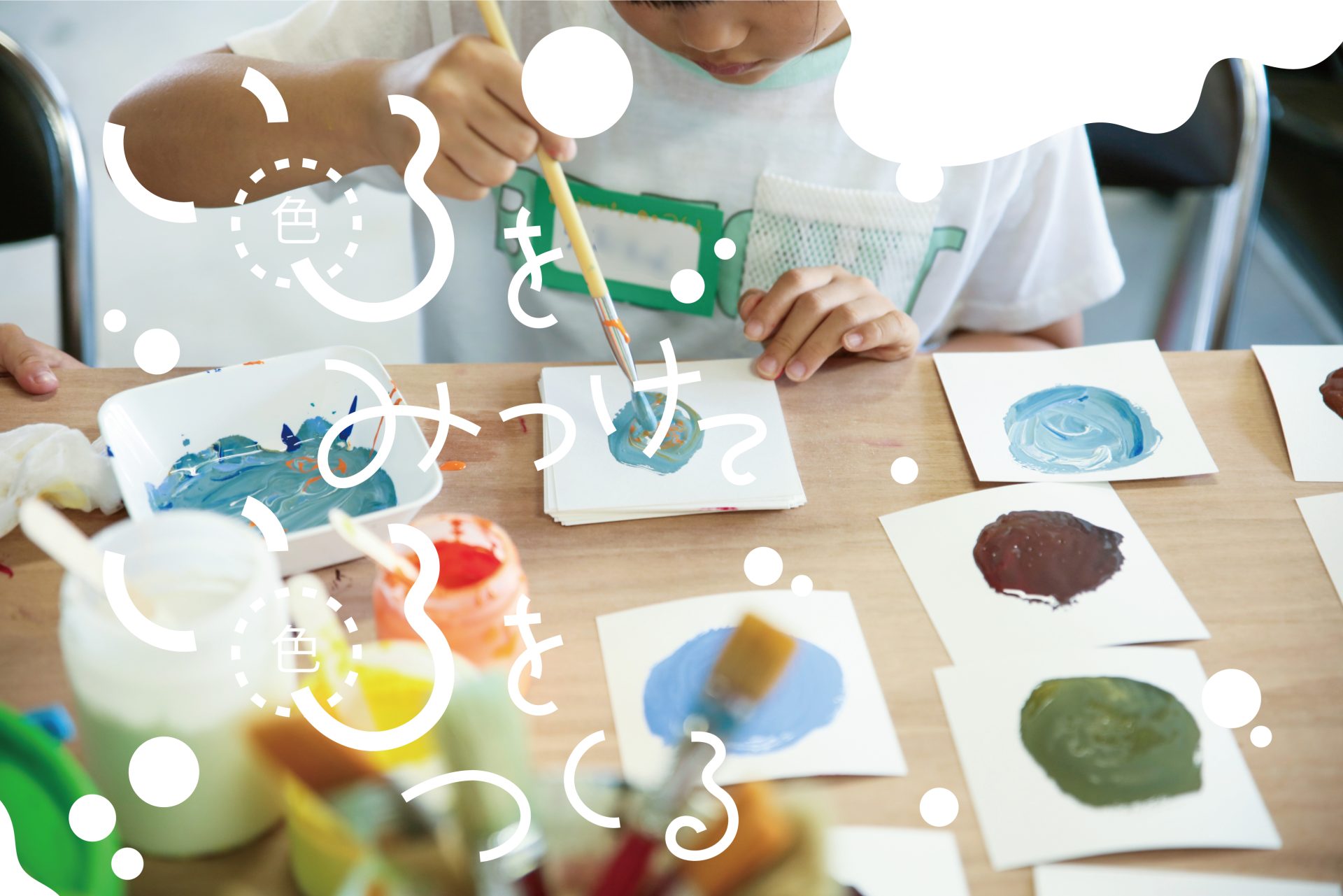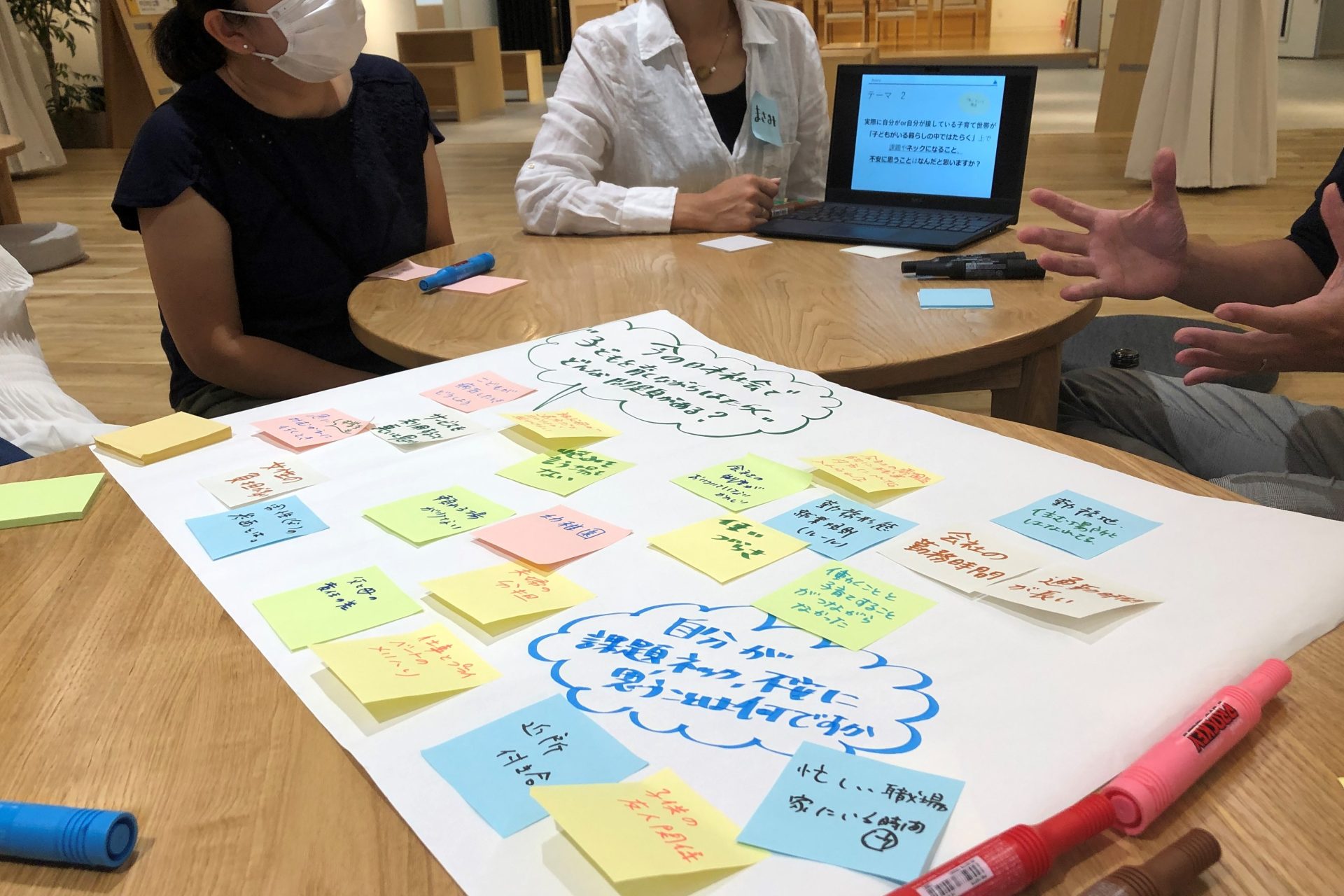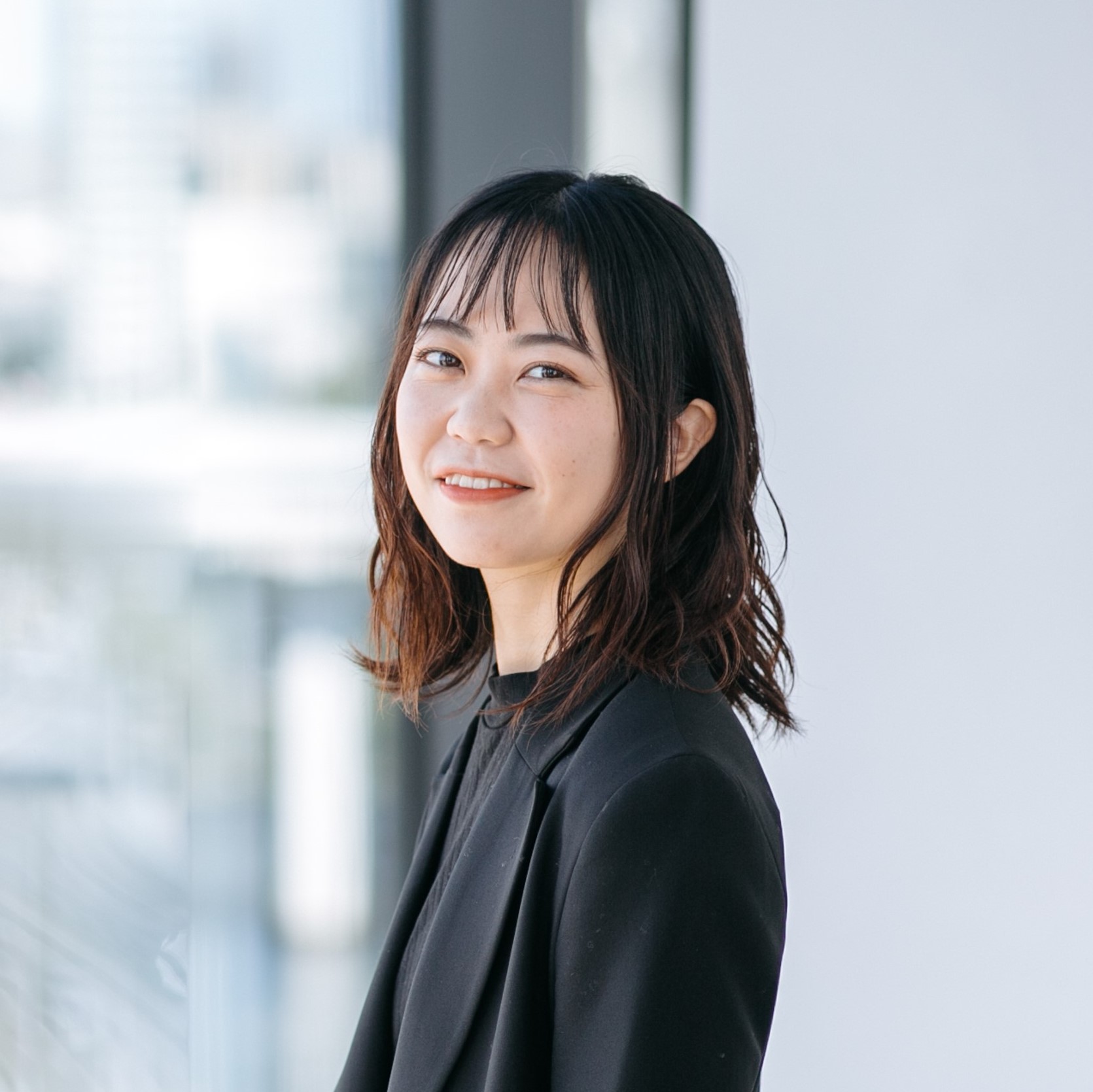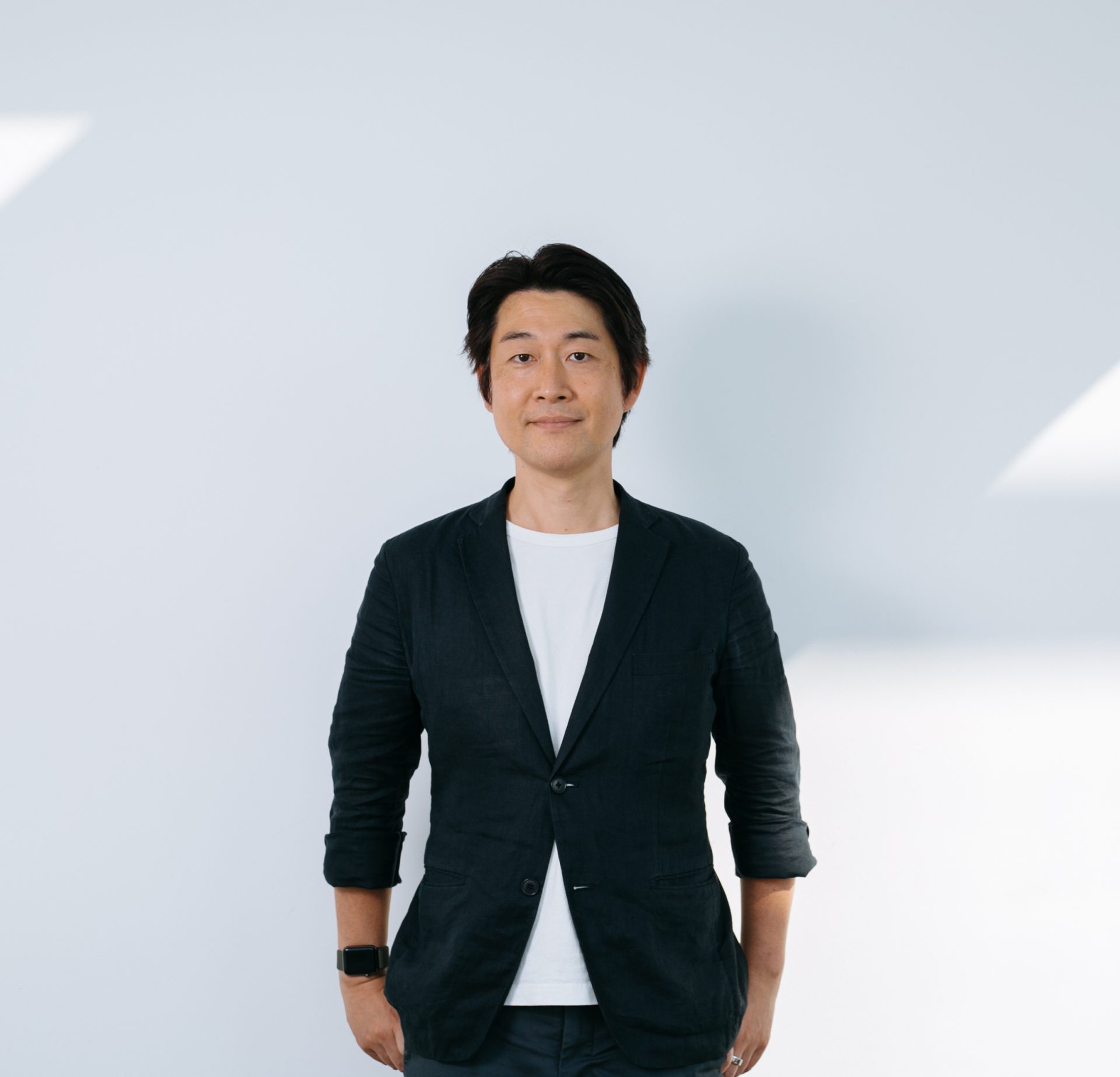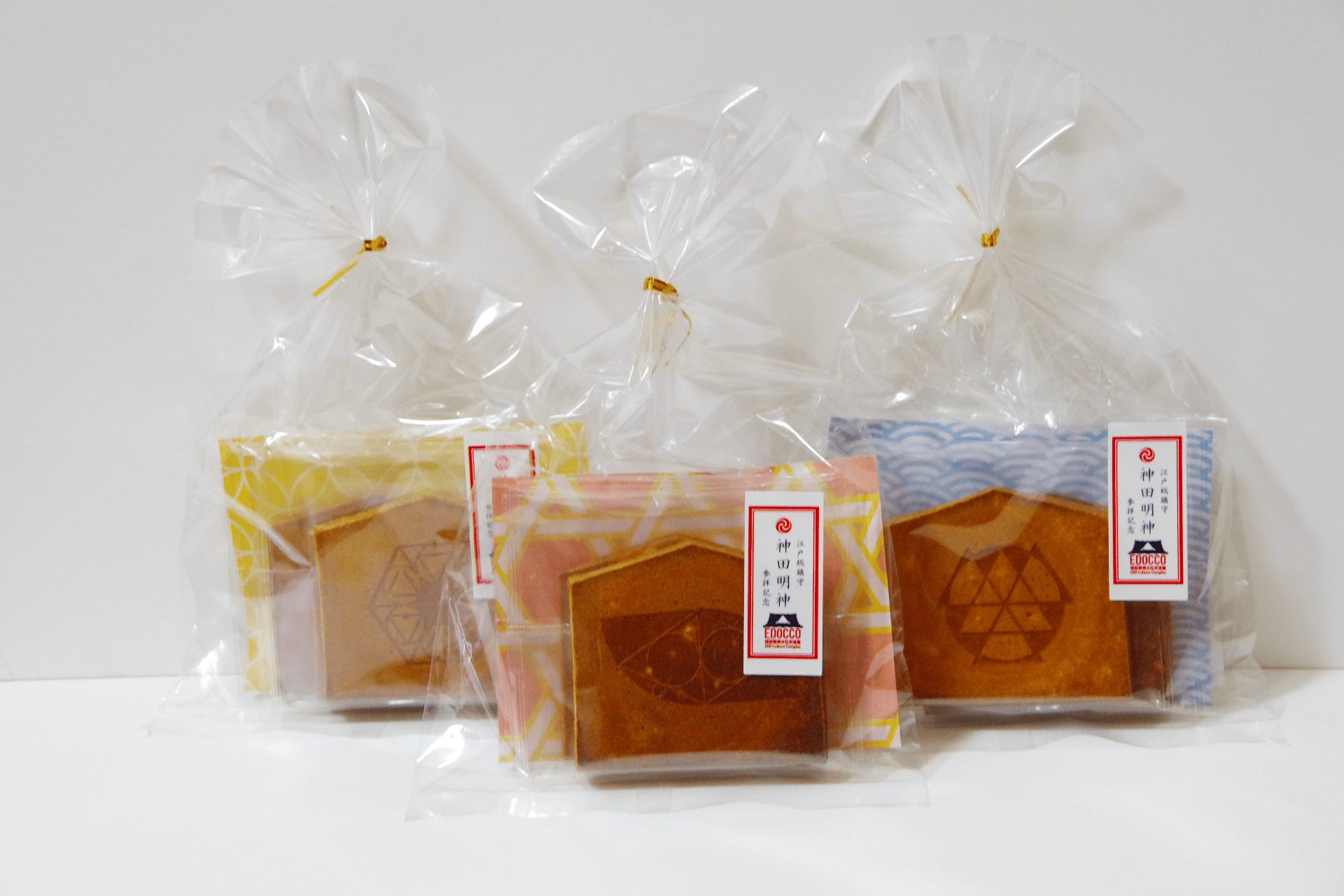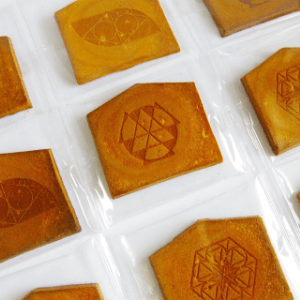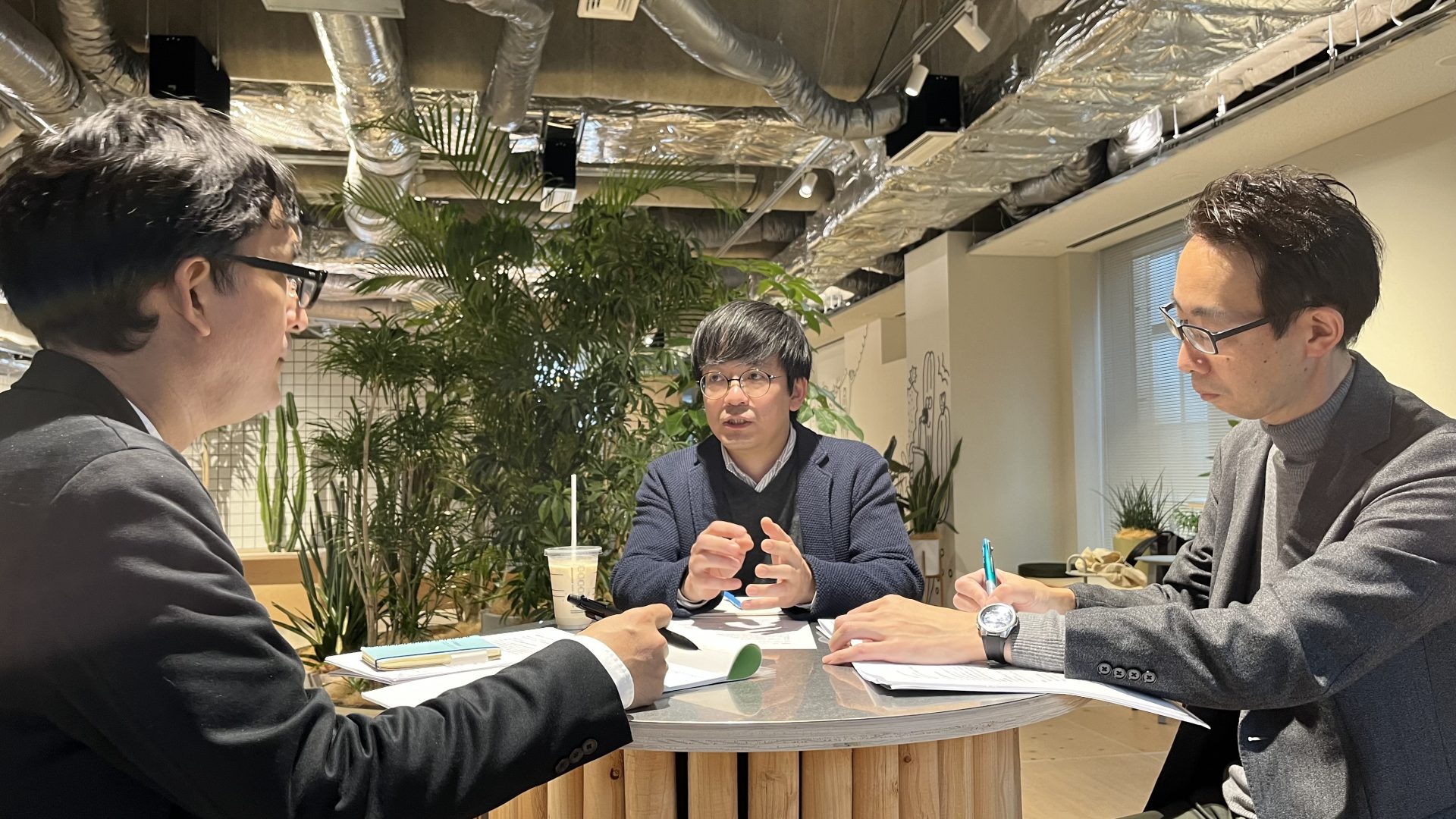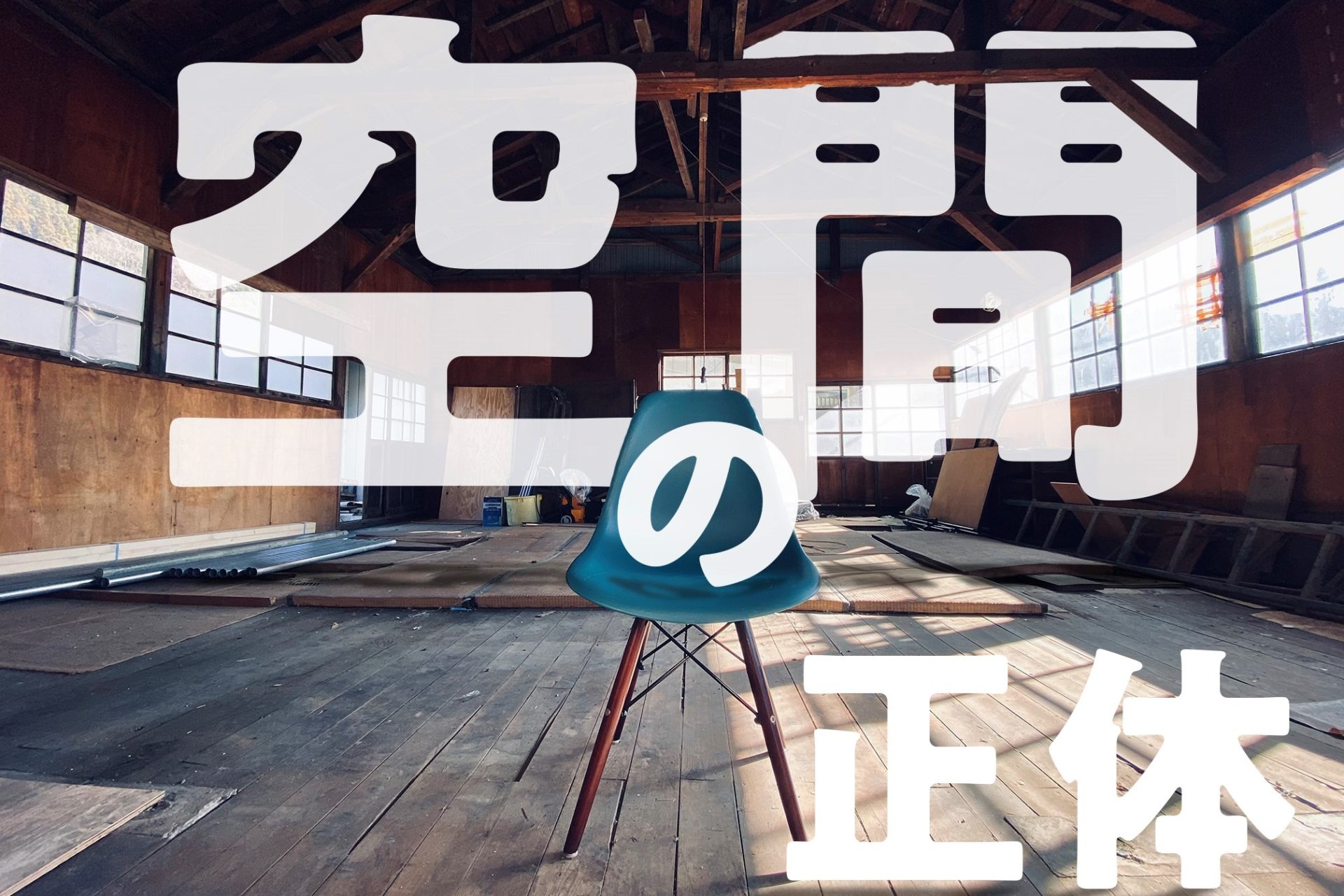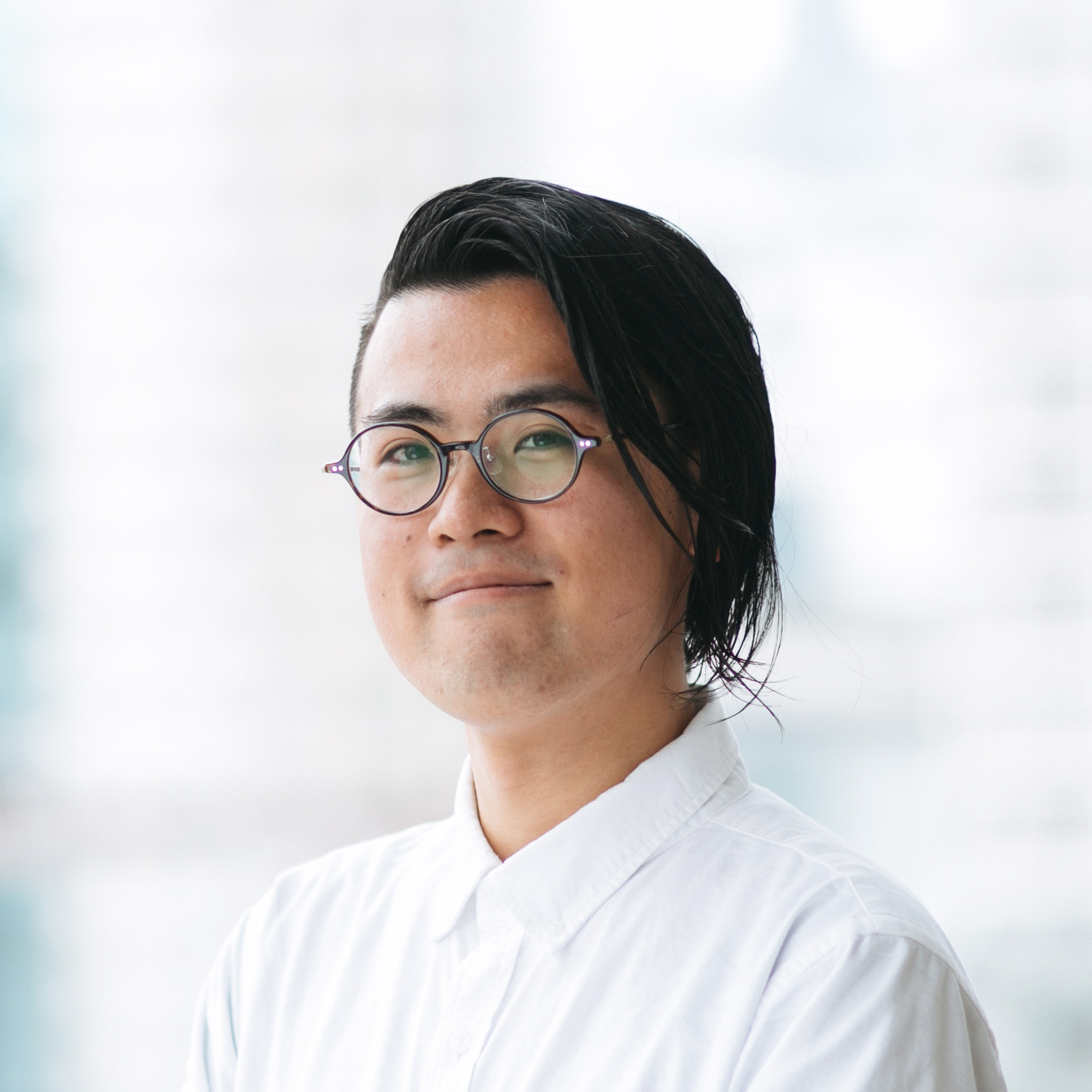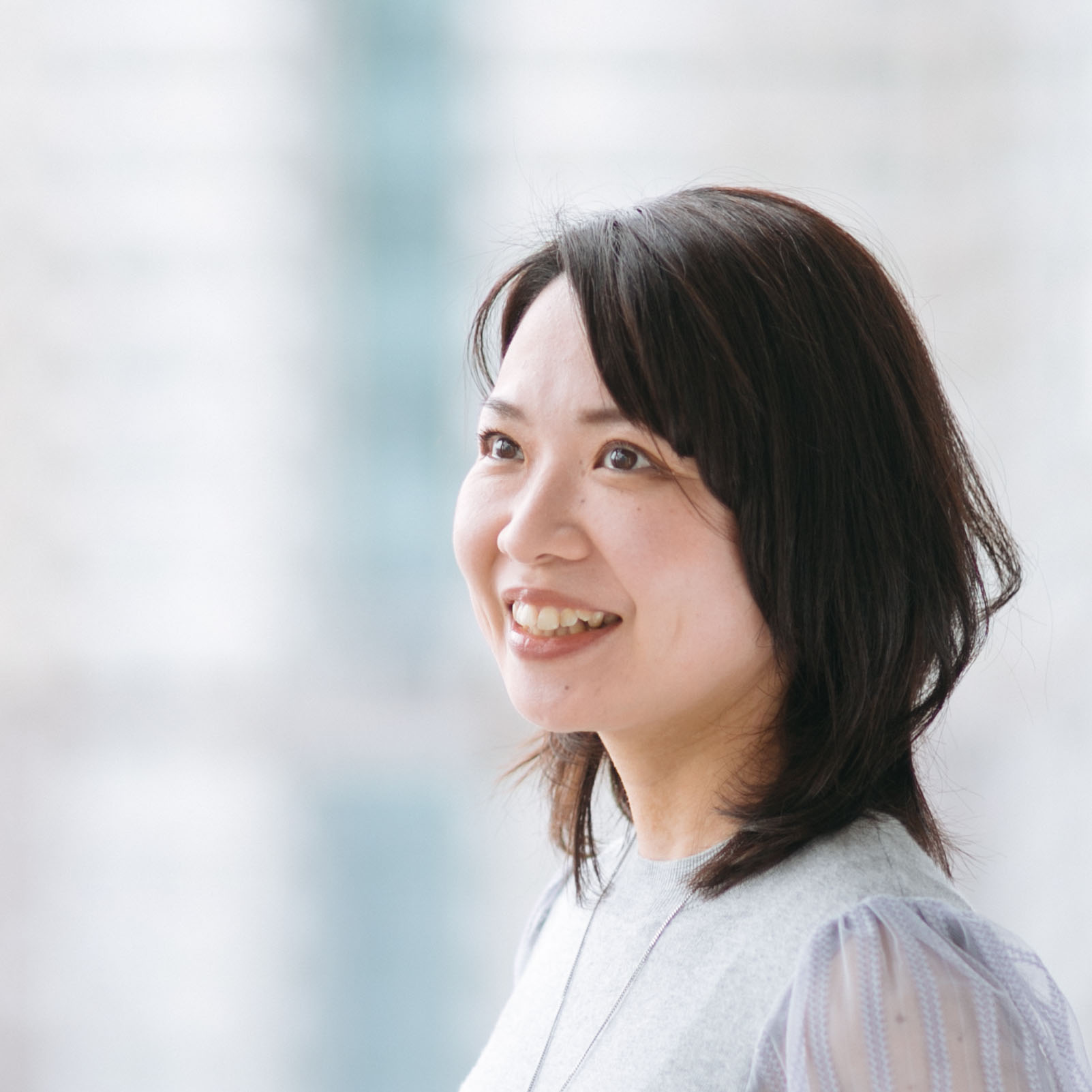- text and edit by
- Reiko Ibe
It was a clear Saturday, just after the rainy season, which began later than usual. Members of NOMURA Co., Ltd. 's Regional Design R&D team held a "Parent-Child Farm Lunch & Amanatsu Workshop" and a "Amanatsu Candle Night" in Nebukawa, Odawara City. This article reports on the event.
Adding value to the local "ordinary"
At Regional Design R&D, our mission is to "transform the local 'ordinary' into value and create 'liveliness' in the region," and we are challenging ourselves to create communities that utilize the power of creativity.
Nebukawa is a major citrus farming area, with fruit trees bearing fruit every season. Farmers sell lemons and mandarin oranges by the roadside without anyone there, and you can even get some as a bonus when you buy fish at the fishmonger's. It seems that the locals live off of fruit trees without having to go out of their way to buy them. We wanted more people to know about the wonderful environment surrounded by abundant nature that you can experience when visiting Nebukawa from Tokyo, and we wanted the locals to feel the natural goodness of their local area.
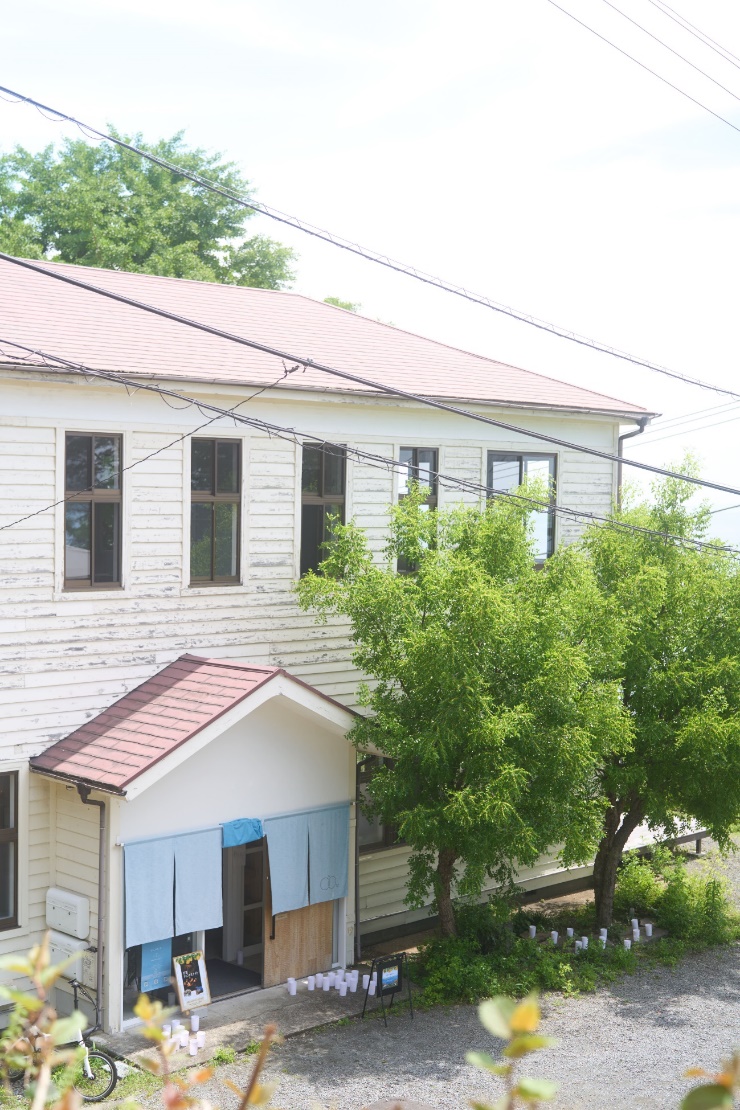
The venue for this event, Workcation House U (hereafter referred to as U), is a workcation facility located between the sea and mountains of Nebukawa. Built in 1953 as the Kataura Village Hall, this wooden building was later used as a branch office of Odawara City Hall. Bunshodo Co., Ltd. renovated it into a workcation facility in 2022 while retaining the original appearance.
Together with the management team, we planned an event in this place that is so dear to the hearts of the people of Nebukawa, where local children and city children could interact through the content of citrus fruits, which are a "common part of the region," and the nature that surrounds them.
Farm lunch and sweet orange workshop for parents and children
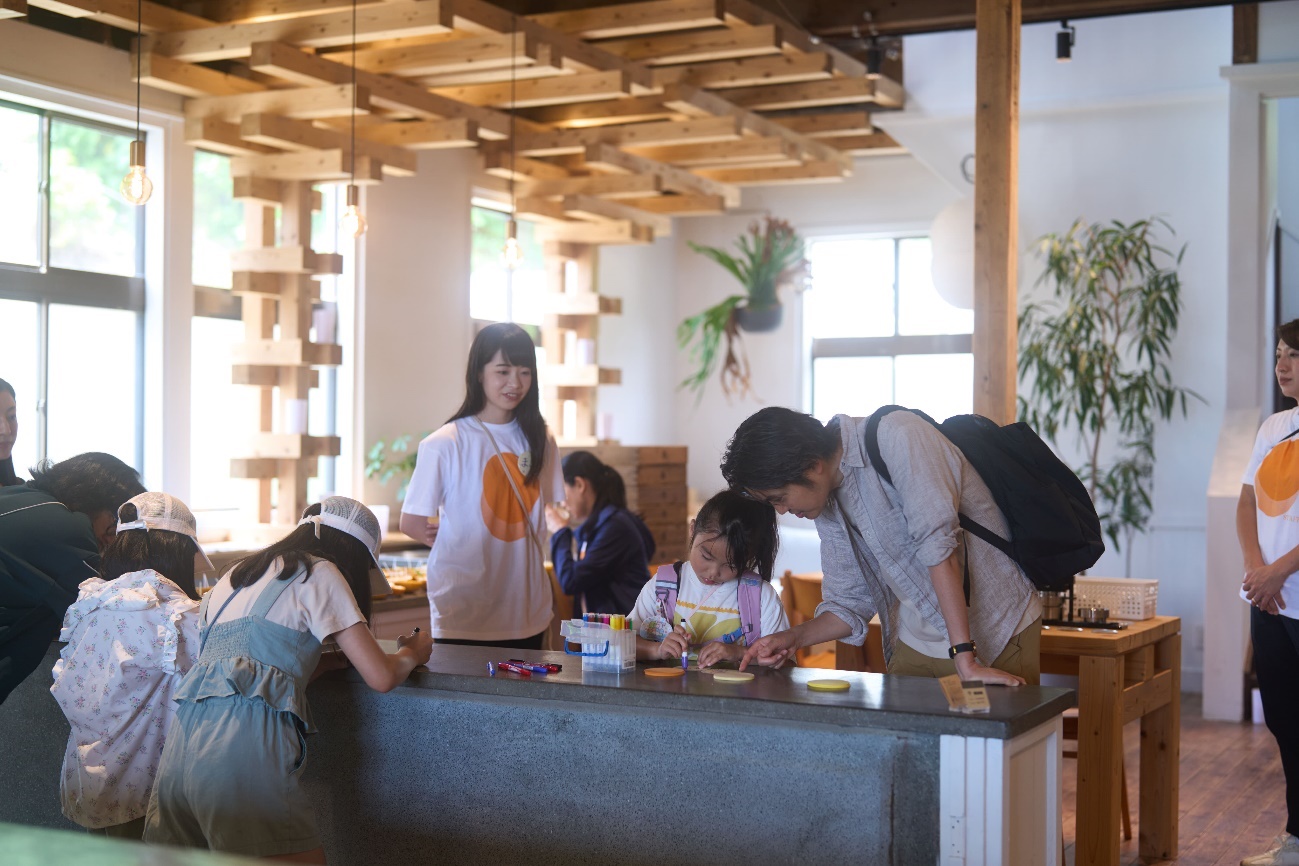
This is a packed workshop where you can eat rice balls at a citrus farm, experience harvesting sweet oranges, make sweets using the sweet oranges, and make candles using the peels of sweet oranges. We gathered at U, drew our names and illustrations to make original badges, and then headed to the mountains where the citrus fields are located, about a 10-minute walk away.
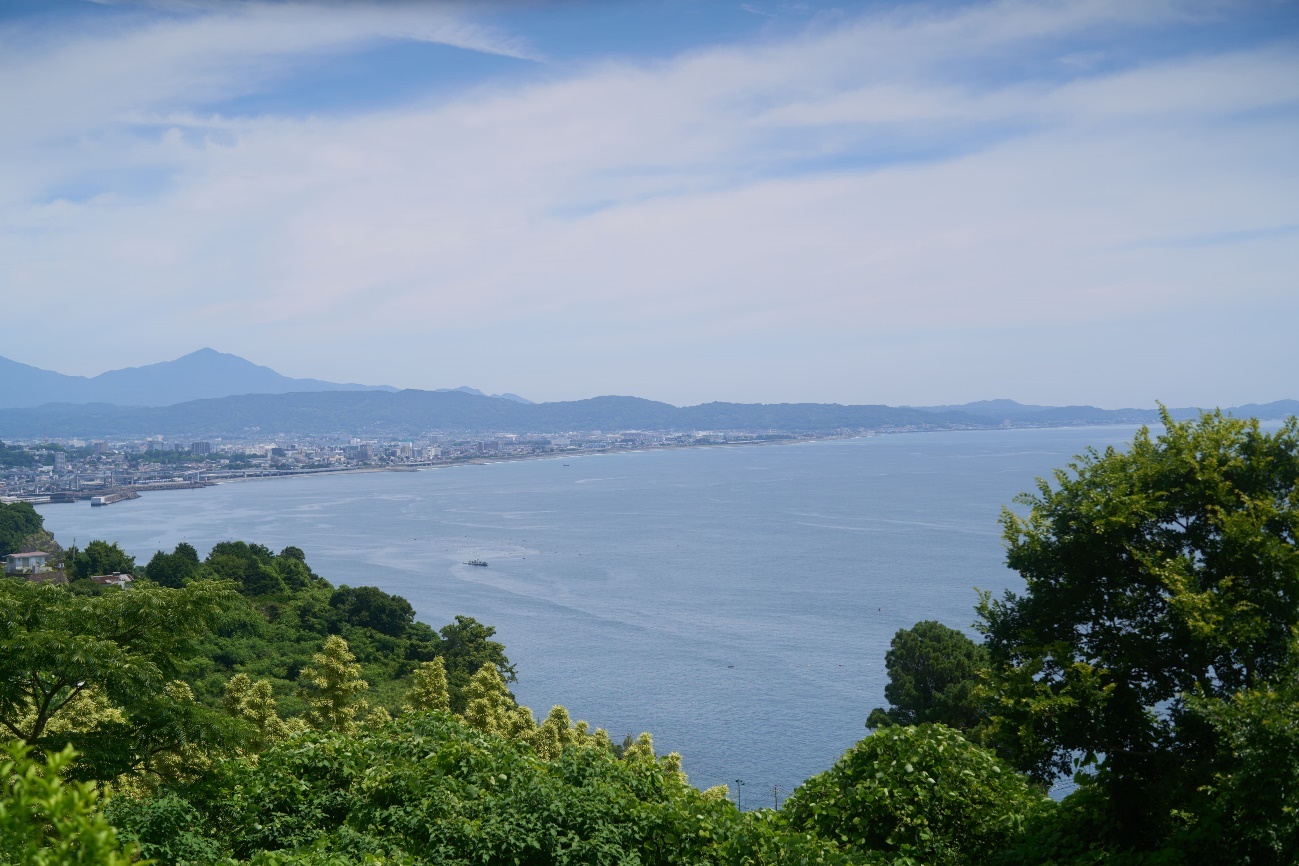
Climbing the steep slope of the citrus orchard mountain, we turned around and saw the beautiful view of Sagami Bay. We enjoyed lunch of rice balls and skewers made with specially selected rice cooked in a pot while admiring the beautiful view. The owner of the citrus orchard, Mr. Maki of Hareyaka Farm, moved to Odawara after graduating from university to study agriculture, and opened his own farm in 2023. After lunch, the children listened to Mr. Maki talk about the citrus orchard.
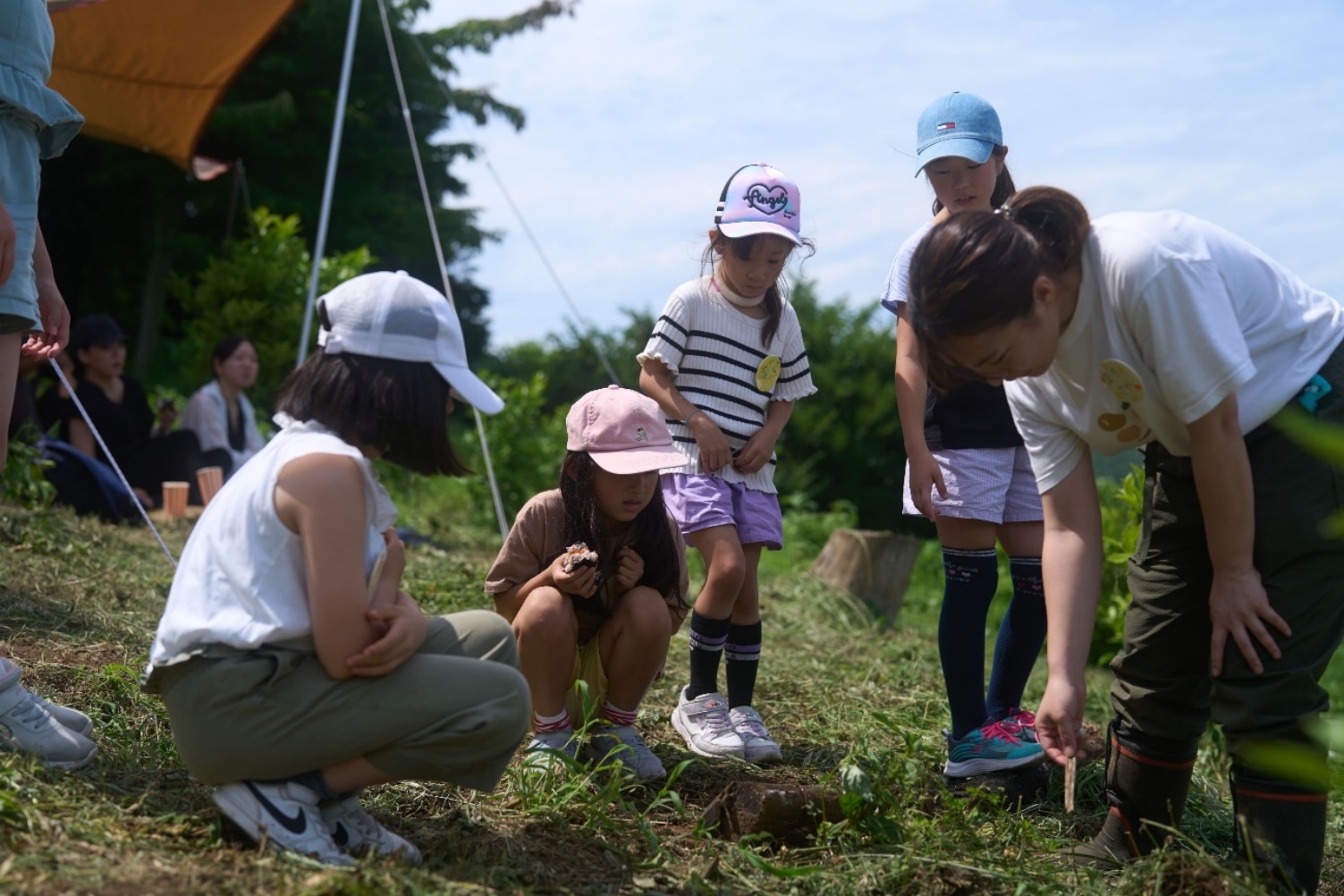
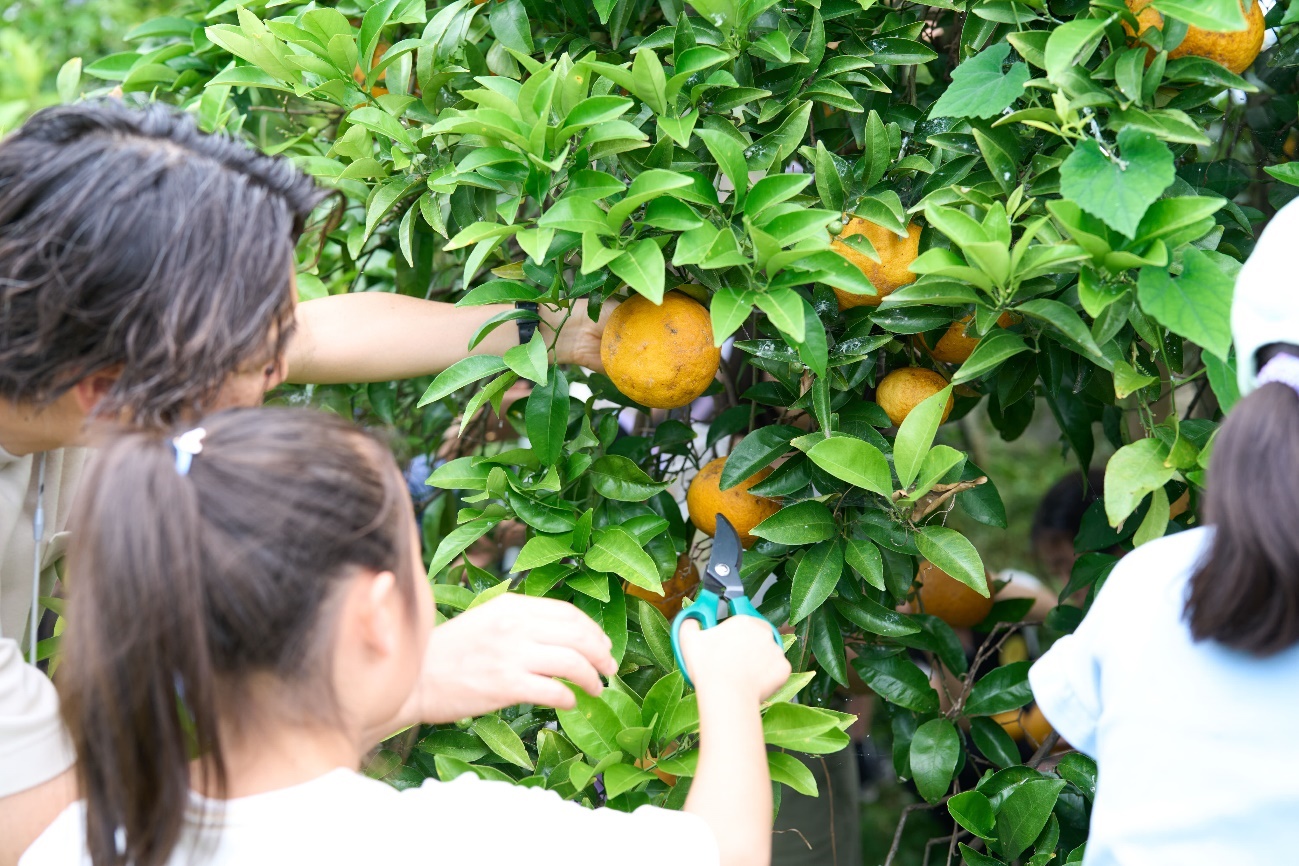
In the sweet orange harvesting experience, the children picked their favorite fruits from the trees, which were all different in size and color, and reached out to pick them. They then chose one fruit from the harvest and moved on to decorating a tart and making a candle.
The instructor for the Amanatsu tart workshop was food coordinator Saki Yamamoto. She is originally from Odawara and is well versed in the local citrus fruits. This time, she baked a tart base that would go well with the Amanatsu topping, and the children carved out fruit and topped it on top. They also made jelly out of the juice that came out when they carved it out, which further decorated the tart. The sweet and sour scent of Amanatsu filled the air.
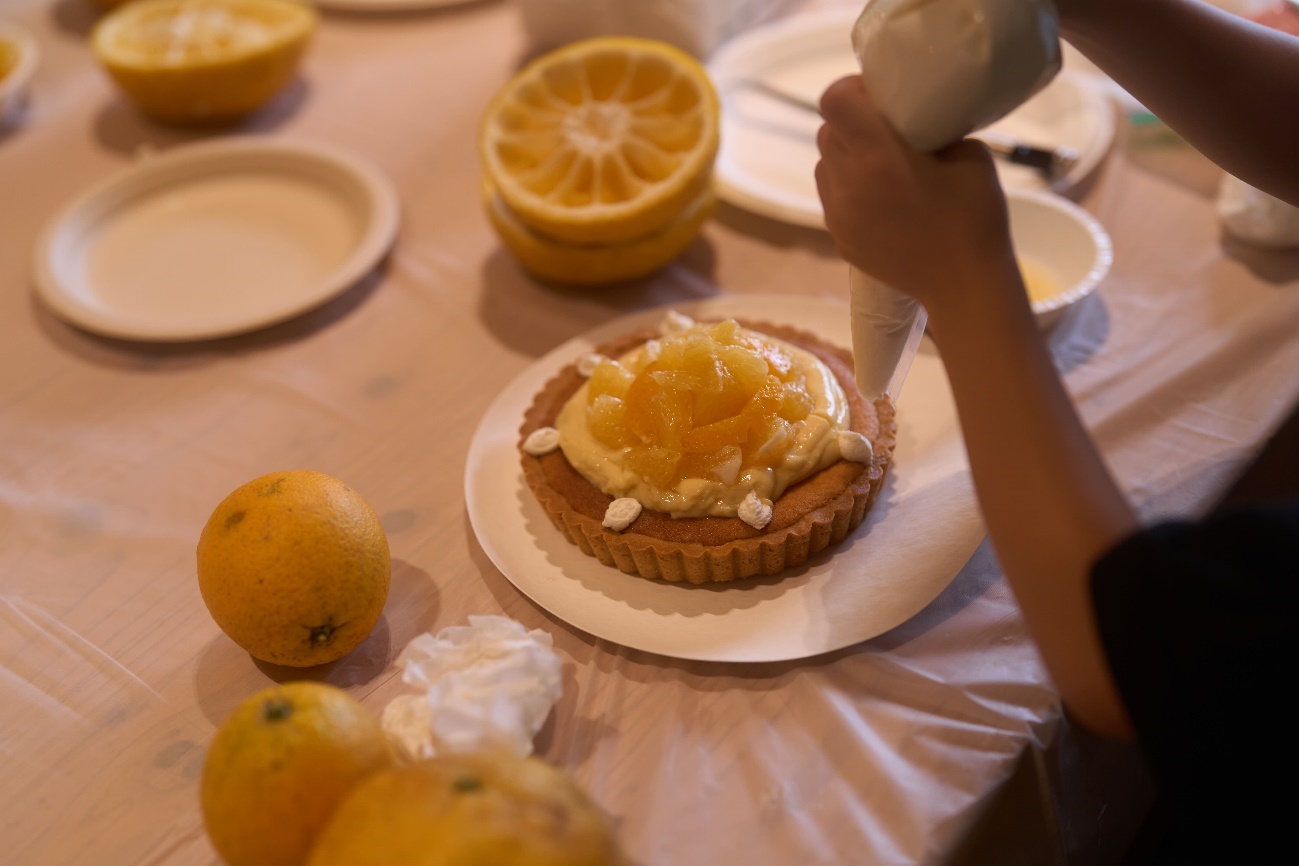
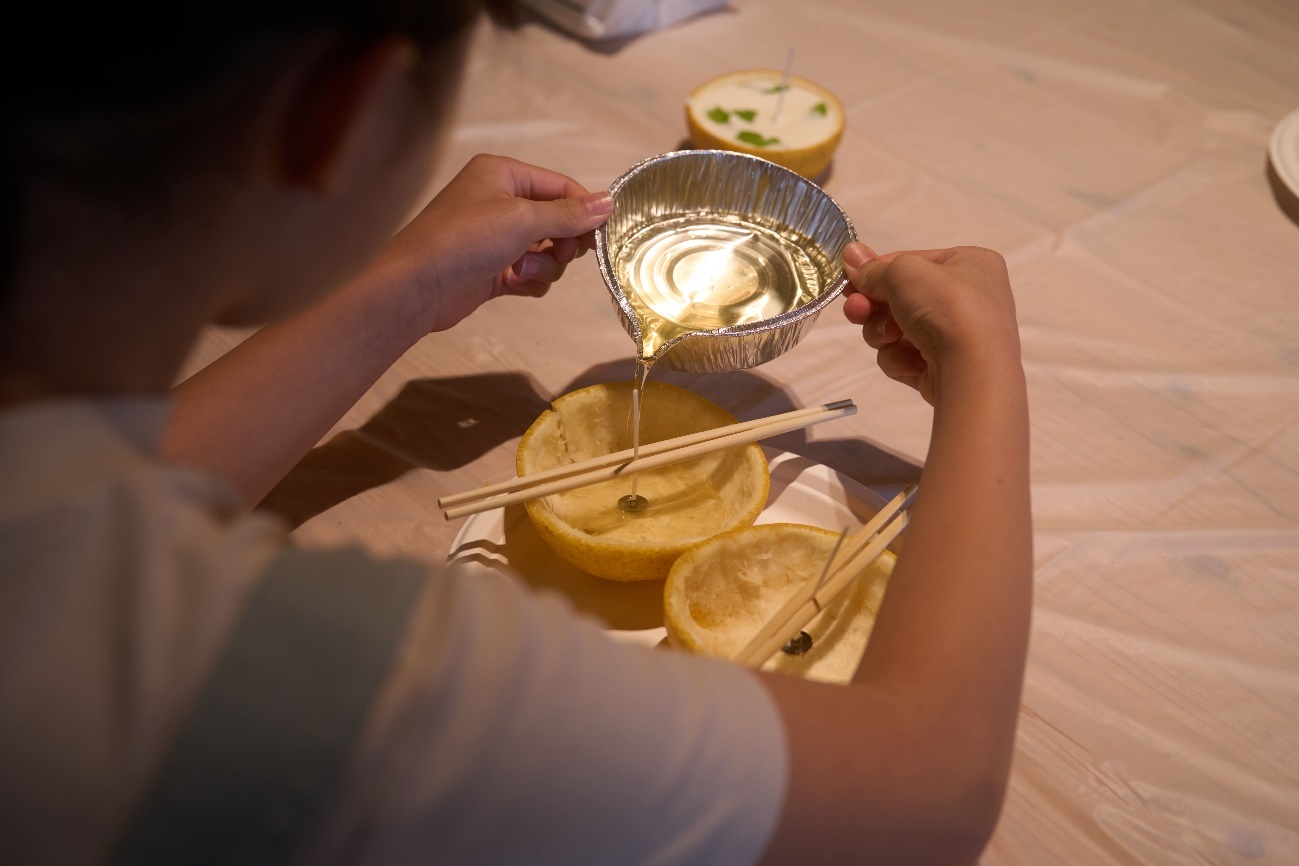
The participants washed the shells that had been carved out for the Amanatsu tarts and made Amanatsu candles. They placed a candle wick into the Amanatsu shell and poured in melted soy wax. Soy wax is a natural vegetable wax made primarily from soybean oil, which has a low environmental impact and produces candles that do not produce much soot. They made their own candles by putting lemon leaves they had collected in the citrus orchards into the candles or decorating them with flowers. While waiting for the candles to harden, it was time for a snack of Amanatsu tarts and tea. Everyone ate the delicious tarts topped with the Amanatsu they had worked so hard to carve out, with a smile on their faces. By the time the snacks were finished, the candles had hardened and the workshop came to a close, with each participant taking home a Amanatsu candle as a souvenir.
Sweet Summer Candle Night
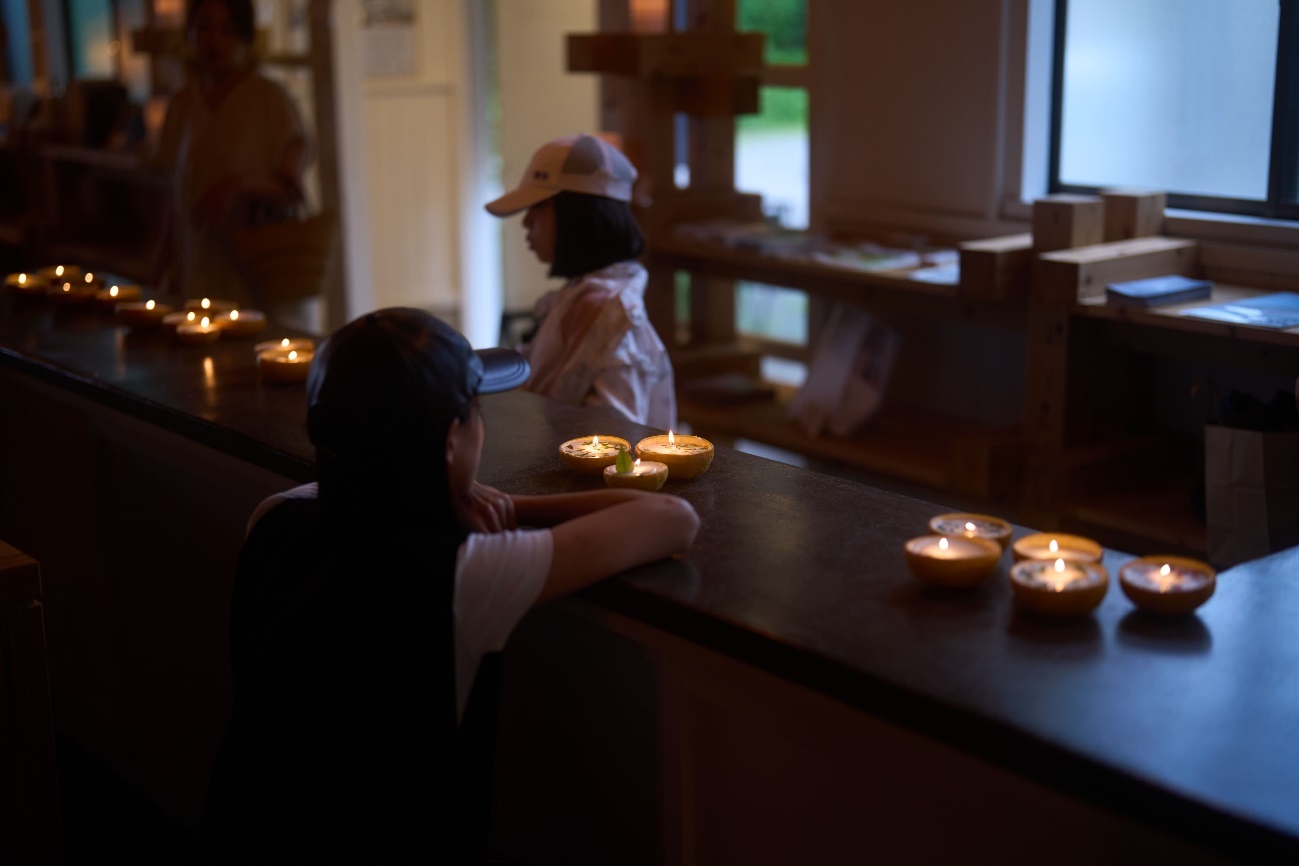
"Candle Night" is an event held all over the country on the summer solstice, where people light candles and spend a slow evening without using electricity. Sympathizing with this movement, we planned a candle night unique to this area, using "Amanatsu" oranges, which are harvested in June in the Nebukawa region. We opened the space that is usually used by members and business people who have pre-registered to the local community, so that anyone can freely enter and spend a relaxing time. After lighting the Amanatsu candles, people could be seen taking photos, enjoying the pleasant aroma, and enjoying the slow sunset of the summer solstice night with relaxing background music playing.
Alcohol and snacks were sold in the square in front of U, and cotton candy was provided to children. Outside, children were playing, while on the second floor overlooking the sea, adults were chatting in the dim light of candles.
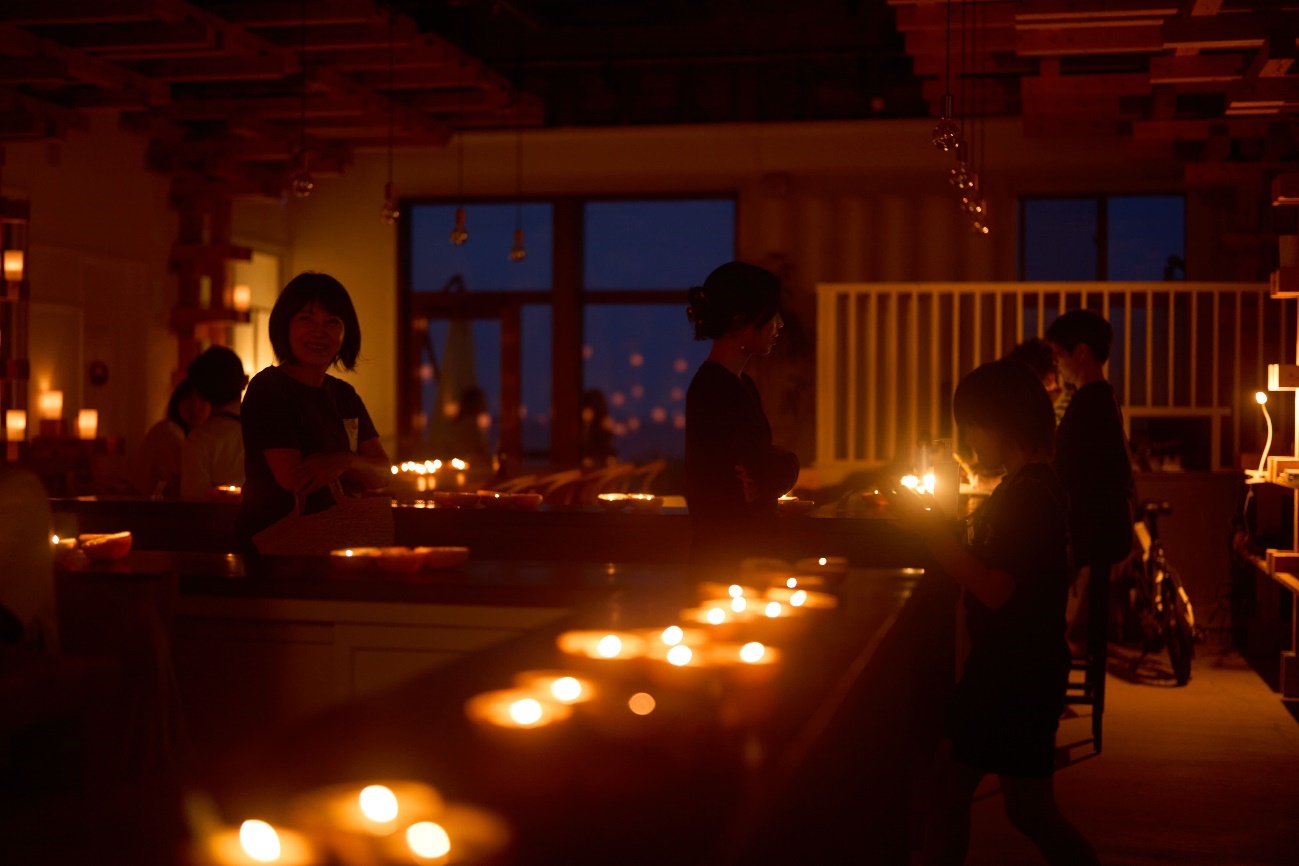
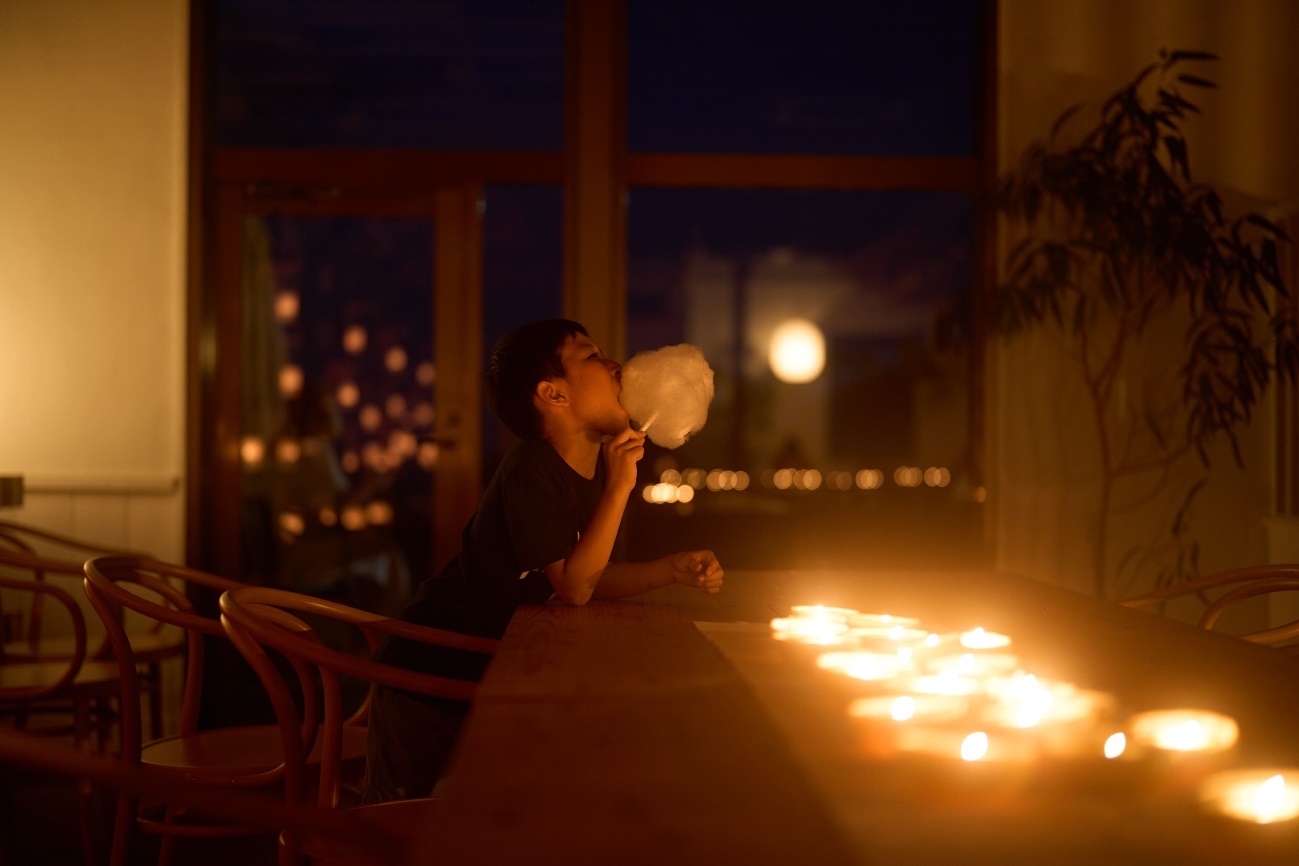
Towards creating a sustainable community
This event was attended by people from Tokyo and Saitama, as well as local residents, and I think it created a unique exchange that could only be found here. During the lunch workshop, it was striking to see children of all ages waving goodbye to each other as they participated. I think this was an opportunity for people to learn about the charms of Nebukawa through an experience that can only be had here, and for local people to rediscover the charms of their hometown. We will continue our activities in the future, hoping that turning the local commonplace into value and increasing the number of people connected to the area will lead to the creation of a sustainable community.
●To coincide with the winter solstice, we plan to hold a "Lemon Picking & Candle Making Workshop" and a "Lemon Candle Night" using lemons that can be harvested in Nebukawa in December.
Like this article?
